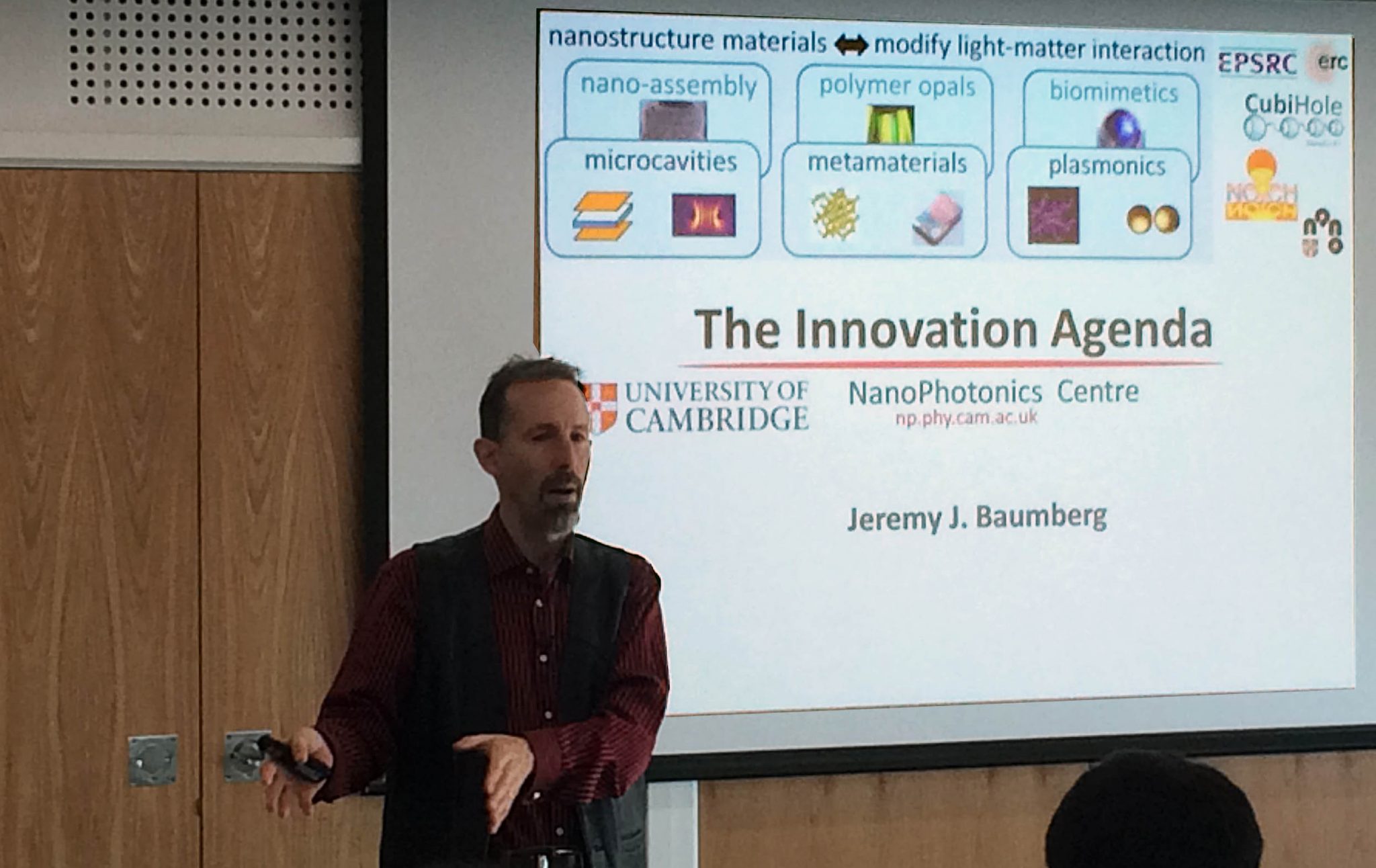“Entrepreneurship is neither a science, nor an art; it is a practice”, management guru Peter Drucker once said. What better way then for young researchers to learn about commercialisation than by talking with those who’ve done it before?
In October Cambridge Enterprise tested this approach with a workshop for academic researchers in the physical sciences at the Maxwell Centre.
The morning started off with Prof Jeremy Baumberg, serial entrepreneur and professor in the Department of Physics, who set the scene talking about how commercialisation is a natural next step from university research.
Baumberg was followed by Prof Tuomas Knowles, Department of Chemistry, who discussed his experience setting up his first spin-out company, Fluidic Analytics. Fluidic Analytics has raised more than £5 million and, after two years of product development, is now close to selling its first product for protein analysis in a single chip.
Dr Bart Hallmark, Department of Chemical Engineering, took the stage next, giving his first-hand experience on what it’s like to license a technology to multiple licensees in very different fields, all done with the help of Cambridge Enterprise. The speeches were followed by plenty of time for talk and discussion, and refills of coffee and pastries, before the next two in-depth sections, presented by Mr Chris Rider, director of the EPSRC Centre for Innovative Manufacturing in Large-Area Electronics, and Dr Charles Boulton, Department of Engineering, on managing intellectual property and on communicating and pitching your research.
The morning ended with an overview from Dr Malcolm Grimshaw, Head of the Technology Transfer Physical Sciences team at Cambridge Enterprise, on how Cambridge Enterprise can add value and help academics through the humps and bumps of commercialising university research.
The all-morning workshop was packed with useful information you cannot find in books, videos or blogs. As Boulton put it: “It’s fascinating to get different perspectives from different people who have done spin-outs and licences—many of the lessons to be learned are in their stories”.











